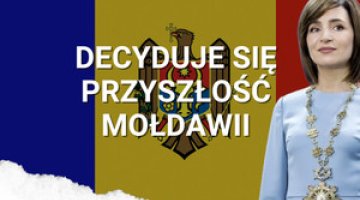Chisinau is taking a tougher stance on Transnistria
On 28 October, during a meeting in Tiraspol with Ambassador Radojko Bogojević, the OSCE’s special envoy for the settlement of the Transnistrian conflict, Nina Shtanski, the head of the so-called Foreign Ministry of Transnistria, concluded that there were no grounds to resume meetings in the 5+2 negotiation format (Moldova and Transnistria as the conflicting parties, and the USA, the EU, the OSCE, Russia and Ukraine as mediators). The last meeting in this format was held in June this year. The main obstacles Shtanski cited included court proceedings launched against Transnistrian officials by Chisinau (for example, against the ‘prime minister’ of Transnistria, the presiding judge of the Supreme Court and the ‘minister’ of agriculture); the Moldovan government withholding the issue of export certificates for Transnistrian companies trading with Russia; the problems Transnistrian officials have encountered during flight transfers at Chisinau airport; the ban on entry to Moldova imposed on the director of the Transnistrian branch of the Russian Institute for Strategic Studies (RISI); Ukraine taking a tougher stance on Tiraspol, and other matters. Shtanski also made it clear that Tiraspol will remain open to direct dialogue with Chisinau, at the level of both political representatives and expert groups.
Commentary
- The statement from ‘Minister’ Shtanski, who officially represents Transnistria in the 5+2 format, means that this process has been formally frozen. In fact, this format has been losing significance at least since the moment when Moldova initialled the Association Agreement with the EU in November 2013. Only two meetings were held in 2014 (in February and June), and neither of them brought any tangible results.
- Over the past few months, Chisinau has adopted a more assertive policy regarding the Transnistrian issue. The government has been employing previously unused methods with increasing confidence. In addition to the moves mentioned by Shtanski, the government has refused entry to Russian soldiers going to Transnistria via Chisinau airport on several occasions over the past few months. Furthermore, the Moldovan secret services confiscated letters expressing support from residents of Transnistria for the region’s incorporation into Russia which were carried by the Russian deputy prime minister, Dmitry Rogozin, onboard a Russian airplane. It appears that these moves might signify a durable change in Chisinau’s stance on Tiraspol (on condition that the pro-European coalition remains in power). On the one hand, this is a consequence of Moldova’s signing the Association Agreement with the EU, and on the other, of Ukraine adopting a tougher stance on the Transnistrian issue since March 2014 because Kyiv now views the region as a real threat to Ukraine’s security. These two factors have offered Chisinau greater opportunities to influence this breakaway region.
- The Transnistrian government’s decision fits in with the Russian narrative whereby enhancing the process of Moldova’s integration with the EU will adversely affect the possibilities of resolving the Transnistrian conflict. Russia sees the freezing of the talks as an element of pressure on the Moldovan government and electorate, who are concerned about a possible increase in tension between Chisinau and Transnistria and the Donbas scenario being repeated in Moldova. This also represents Tiraspol’s attempt to press Chisinau to force it to soften its policy on this region.





